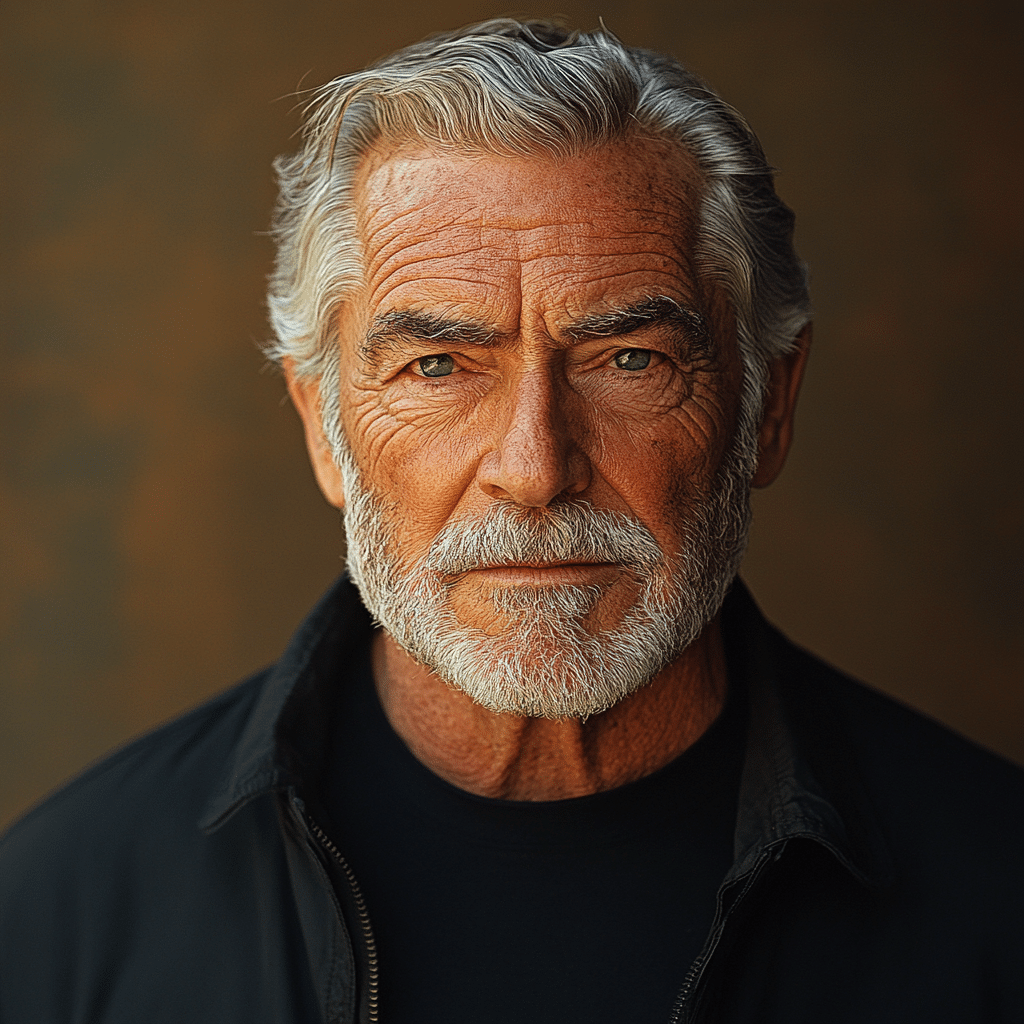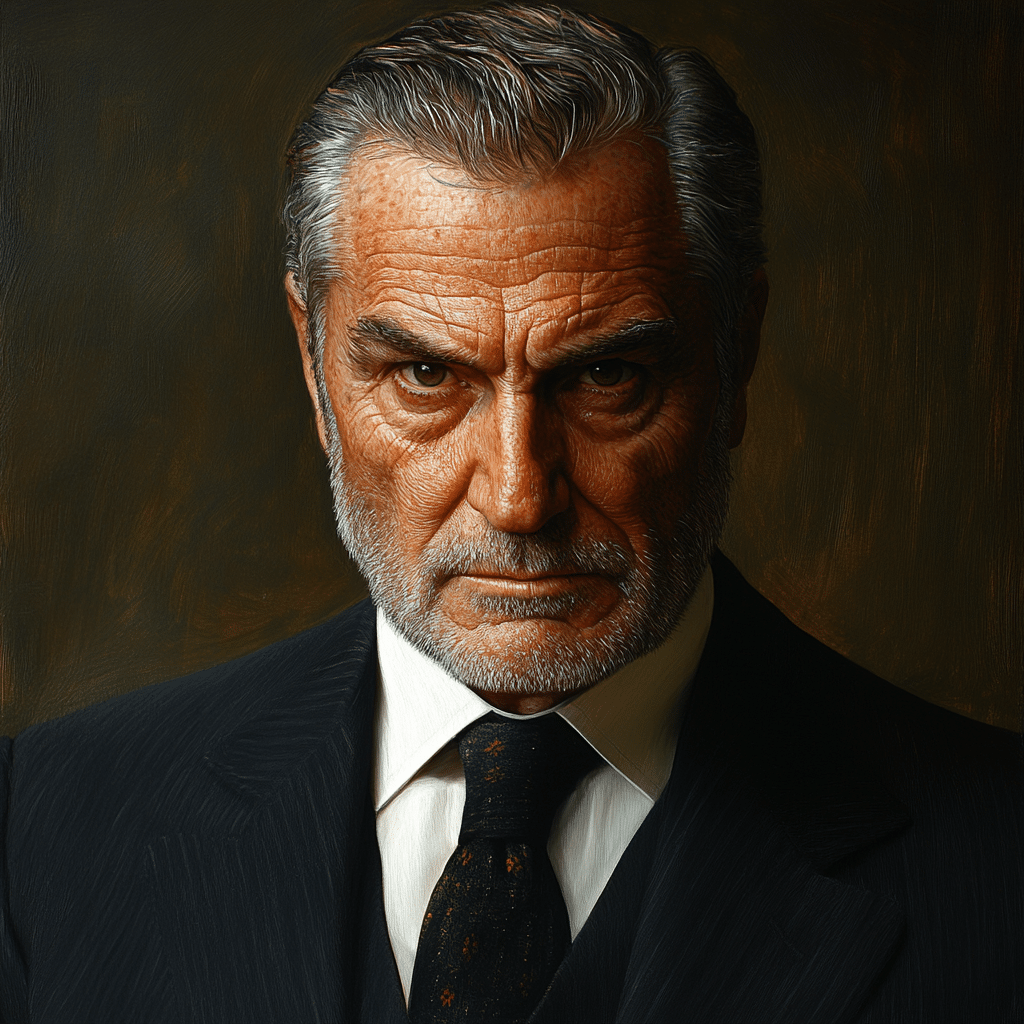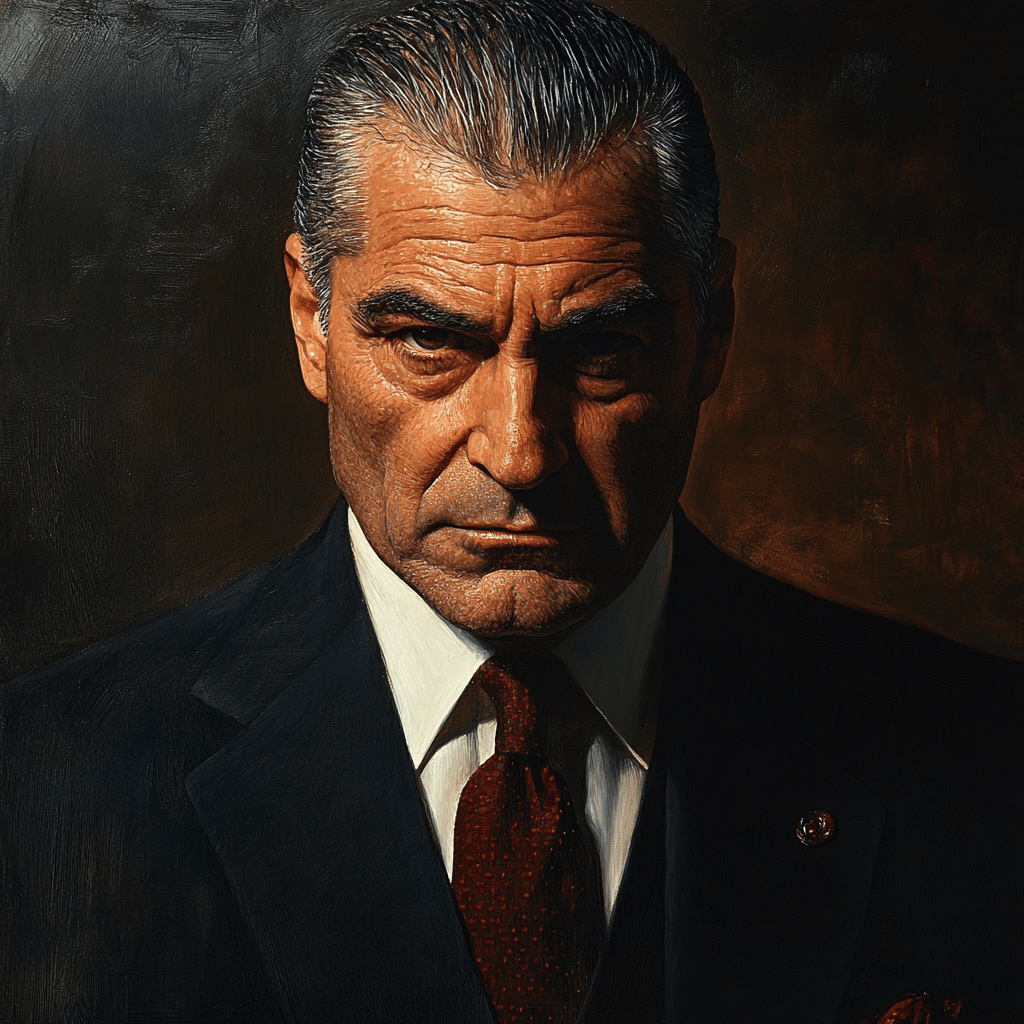The Evolution of Robert De Niro’s Career
Robert De Niro, a name that resonates with cinematic achievements, has carved a path through Hollywood’s landscape that is nothing short of fascinating. His career started in the bustling streets of New York City, where he honed his skills in the vibrant 1960s theater scene. De Niro’s rise to fame kicked off with Mean Streets in 1973, a gritty film directed by the visionary Martin Scorsese. This pivotal moment put him on the map and ignited a collaboration that would produce some of the most iconic films in history.
In the late 1970s, De Niro began experimenting with diverse roles, showcasing his range and commitment as an actor. Whether he was playing a troubled youth or a cold-blooded killer, his ability to transform into any character left audiences in awe. By the time he starred in Taxi Driver (1976), he had already cemented his image as a star who wasn’t afraid to delve into the darkness of human nature.
De Niro’s evolution continued into the 1980s and 1990s, bringing us unforgettable performances that shocked and delighted. Every film, from Raging Bull to Goodfellas, showcased his innovative approach to acting and storytelling. He didn’t just play roles; he embodied them, offering viewers a glimpse into the depths of his characters’ souls.

Top 7 Iconic Roles of Robert De Niro
Robert De Niro’s filmography is a rich tapestry woven with unforgettable characters that have shaped cinema. Here are seven of his most legendary roles, each highlighting his exceptional talent and enduring influence:
A vigilante antihero, Bickle’s descent into insanity captured the gritty essence of urban life in the 1970s. De Niro’s chilling line, “You talkin’ to me?” has become emblematic of isolation and rage.
Taking on the mantle of the young Vito Corleone, De Niro’s performance earned him his first Academy Award. His portrayal of Vito’s transformation from impoverished immigrant to formidable mob boss showcased his profound understanding of character development.
De Niro’s commitment to portraying the fierce boxer LaMotta was extraordinary. He gained weight for the role, illustrating the physical and mental toll of LaMotta’s tumultuous life, and snatched another Oscar in the process.
De Niro portrayed a mobster’s rise and fall within the high-stakes world of Las Vegas. His ability to balance charm with malevolence made Ace Rothstein a character that remains etched in film history.
Sharing the screen with Al Pacino, De Niro’s captivating performance as a career thief highlighted the dueling lives of criminals and lawmen. Their psychological cat-and-mouse game set a new standard for crime dramas.
Pushing his boundaries into comedy, De Niro’s portrayal of a mob boss seeking therapy was refreshing. This role demonstrated that even the most serious actors could successfully flip the script, mixing drama with humor.
Collaborating again with Scorsese, De Niro’s portrayal of a hitman wrestling with guilt and mortality invited audiences to question the price of loyalty. His nuanced performance in this three-and-a-half-hour epic proved De Niro’s unmatched prowess as an actor.
De Niro’s Influence on Modern Cinema and Beyond
Robert De Niro’s influence is felt in every corner of modern cinema. He has not only set the standard for dramatic performances but has also helped shape the art of acting itself. Today’s actors, such as Adam Driver and Timothée Chalamet, often cite De Niro as a critical influence, inspiring them to explore the depths of their own characters.
His involvement in film production, especially in projects like A Bronx Tale (1993), underlines his commitment to nurturing new talent. De Niro doesn’t just inspire through his acting; he actively fosters the next generation of filmmakers, encouraging them to take creative risks and tell impactful stories.
Beyond the screen, De Niro’s impact is also evident in popular culture. His memorable quotes and characterizations have made their way into everyday language, reflecting his vast reach. Just like how the Kohls credit card payment process feels relatable, De Niro’s work feels embedded in the fabric of everyday life.

The Intersection of Art and Politics: De Niro and Dennis Kucinich
Both De Niro and former Congressman Dennis Kucinich are figures unafraid to voice their opinions on social issues. De Niro uses his celebrity to speak out against political figures and injustices, resonating especially in a divided society. This outspoken nature mirrors Kucinich’s advocacy for healthcare reform and anti-war efforts. Their activism proves that powerful voices in entertainment can fuel discourse, inviting audiences to engage with crucial societal themes.
The intersection of celebrity and activism is sometimes met with skepticism, but De Niro and Kucinich both embody a commitment to catalyzing change. Through their respective platforms, they encourage discussions on healthcare, war, and social justice. Such exchanges not only promote awareness but also galvanize audiences towards activism.
The crossover between film and politics can also serve as a transformative force, helping audiences see the importance of civic engagement. De Niro’s bold statements, much like Kucinich’s policy proposals, have the potential to inspire action and foster community dialogue.
From the Silver Screen to Sports: De Niro and Kevin Harvick’s Shared Popularity
On an interesting note, Robert De Niro’s cultural weight can be likened to that of NASCAR driver Kevin Harvick. Both figures dominate their realms, boasting immense popularity and substantial fanbases. While Harvick thrives in high-speed racing, De Niro captivates audiences with his performances.
The parallels between these two icons extend beyond mere fame. Both have built their legacies through hard work, skill, and a relentless pursuit of excellence. Just as Harvick dominates on the racetrack, De Niro continues to excel in his craft, showcasing that dedication can yield significant accomplishments.
Admired by fans across the board, both De Niro and Harvick have become symbols of achievement in their industries. Their unwavering commitment to excellence illustrates that skill and dedication know no bounds, appealing to diverse audiences who appreciate their contributions.
The Enduring Legacy of De Niro in Popular Media
De Niro’s iconic status has led to collaborations with major brands, like Nabisco. These endorsements illustrate how the power of celebrity can elevate a brand’s visibility and connect with consumers on a deeper level. Just as the challenges of the apple tv remote volume not working puzzle many, De Niro’s presence has the power to draw viewers into the narrative through effective marketing.
As we progress through 2024, De Niro’s legacy continues to shape film and culture. His ability to explore complex characters and themes resonates across generations, inspiring both audiences and aspiring filmmakers alike. His contributions extend beyond film, influencing advertising and popular culture at large.
Robert De Niro stands as a timeless figure, proving that the impact of great artistry transcends the screen. He reminds us that storytelling, much like a hit from Boyd Gaming, keeps us on the edge of our seat, offering unexpected twists and profound insights into the human condition. De Niro’s unwavering dedication to his craft guarantees he will remain a pivotal figure in the hearts of audiences for years to come.
de niro: The Legendary Actor Behind Iconic Roles
The Early Days and Absorbent Talent
Did you know that de niro was born in New York City in 1943? Raised in a creative family, he developed a passion for acting early on, which eventually led him to study at the Stella Adler Conservatory. His commitment paid off big time! One of his first major films was “Mean Streets” in 1973, where he starred alongside Harvey Keitel. Speaking of New York, de niro’s iconic performance helped shape the city’s depiction in cinema, much like how the Uss new jersey( represents a significant part of military history.
Legendary Collaborations
Here’s a fun tidbit: de niro has collaborated with director Martin Scorsese over eight times, creating timeless classics like “Taxi Driver” and “Goodfellas.” Their synergy is a testament to their artistic connection. Interestingly, Scorsese isn’t the only icon associated with the arts; look at Camilla , Duchess Of Cornwall,( who has embraced a deep love for literature and the arts, proving that creativity knows no bounds.
Personal Life and Unique Ventures
In addition to his stellar film career, de niro is also a savvy entrepreneur. He co-founded the Tribeca Film Festival, helping revitalize New York post-9/11. Just like how Scott Boras() is a standout in sports management, de niro’s passion for film shows his desire to foster creativity and support budding filmmakers. On a personal note, he has three children, one of whom, Lulu Simon,(,) has made a name for herself in the music industry, blending family talent with contemporary flair.
So there you have it! de niro isn’t just a legendary actor; he’s an inspiring figure who’s influenced many facets of culture, art, and business through his life and work. Whether you’re watching one of his films or learning about his entrepreneurial spirit, there’s always something new to discover about the man behind the legend.




